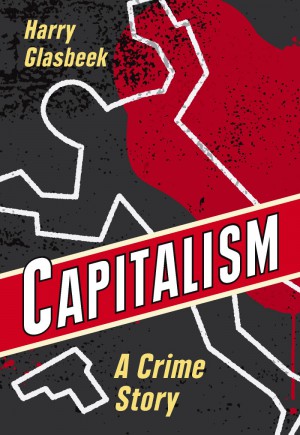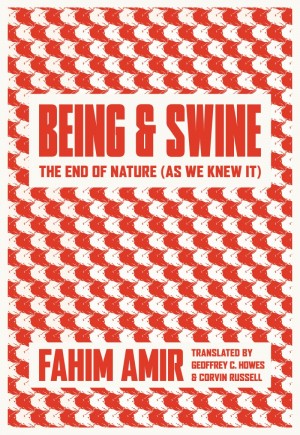_800_1236_90.jpg)
Law at Work
The Coercion and Co-option of the Working Class
In a series of illuminating essays, the renowned Harry Glasbeek unpacks how law has been used to ensure that workers' aspirations are kept in check. Law at Work uncovers how the legal system, through its structures and mechanisms, legitimizes and reinforces the exploitation of workers. Using historic and contemporary examples, Glasbeek illustrates how conscious manipulations of law are part and parcel of how law protects capitalists at the expense of workers. He proves how the very laws designed to safeguard rights and freedoms often act as invisible shackles, compelling readers to reflect on their own struggles as they navigate a world where the legal system fails to serve their interests. These manipulations are made to look innocent because the underlying structures and ideology which give rise to specific rules are not challenged or challengeable. This thought-provoking book is an indispensable resource for those seeking to understand the hidden dynamics of worker oppression, empowering readers to question prevailing narratives and envision a future where the law truly serves the interests of all.
Praise
“Harry Glasbeek masterfully unmasks the hidden assumptions that inform the law at work, revealing law’s role in justifying and operationalizing employer superiority. Law at Work is driven by a passionate demand for human emancipation and a rigorous demonstration of why that is not possible under capitalism. Even if you think you understand labour law, you don’t until you’ve read this book.”
– Eric Tucker, professor emeritus, Osgoode Hall Law School, York University
“Harry Glasbeek reveals how the legal system—meant to protect—paradoxically reinforces the exploitation of workers. Law at Work is a compelling read that challenges us to reconsider the emancipatory potential of the law for workers and their unions.”
– Larry Savage, chair, Department of Labour Studies, Brock University
“Harry Glasbeek is a passionate public intellectual, deeply committed to sharing all that he knows. And he knows a lot—especially about the class bias buried deep within our labour laws. Glasbeek’s insights in Law at Work match everything I’ve experienced over decades of union work. He’s also an utterly readable writer, using wit and understatements that make you laugh out loud, even as you shudder.”
– Laurell Ritchie, retired national representative, Unifor
“In Law at Work, Harry Glasbeek reveals how the law’s claims to equality and justice obscure how legal rules and institutions are tilted to help the few at the expense of the many. Glasbeek vividly shows how instead of promoting workers’ freedom, the employment contract—one of capitalism’s foundational legal devices—cultivates workers’ subordination. Drawing on his encyclopedic knowledge of labour law and history, Law at Work offers a compelling, erudite, and energetic explanation of how labour law restricts workers’ power and hinders our collective ability to imagine democracy and freedom at work.”
– Judy Fudge, LIUNA Enrico Henry Mancinelli Chair of Global Labour Issues, McMaster University
“Harry Glasbeek’s meticulous historical account of the law’s complicity in capital’s systematic exploitation of working people is compelling. Law at Work is essential reading for anyone who wants to understand the dynamics of global labour markets and the way in which our legal systems—the common law judges as well as statutory law—have contributed to the persistence of deep inequalities in contemporary societies. Glasbeek has a unique talent in pursuing his robustly scholarly argument in the most accessible prose.”
– Joellen Riley, professor emerita, University of Sydney
“Why are workers killed or maimed at work but not employers? From the fourteenth century to the COVID-19 pandemic, Law at Work covers the gamut of dangers workers have faced in the workplace. Harry Glasbeek explains how the common law of torts, the judiciary, and statutory laws have served the interests of capitalists and capitalism against the interests of workers. Using sardonic wit, insightful analysis, and an entertaining style, Glasbeek challenges the conventional wisdom that the law treats all fairly and that justice can be achieved through the courts.”
– Cathy Walker, retired director, Health, Safety, and Environment Department, Unifor
“Harry Glasbeek provides the reader with a timely and accessible demonstration of all the ways in which the law acts to limit what a contract of employment can provide to workers when it is entrenched in a system of production that depends on extracting labour from the many for the profit of a few. From a master of the field, Law at Work is the legal explanation of why the employment contract under capitalist systems of accumulation will not provide us with bread and roses too.”
– Claire Mummé, associate professor, Faculty of Law, University of Windsor
“Law at Work marks the culmination of six decades of labour law scholarship by Harry Glasbeek. He argues that law, and especially judge-made law, plays a significant role in bolstering capitalist economies. Through the utilisation of the foundational doctrines of contract and property, which are largely the creation of judges, the law of employment reinforces the exploitation of workers.”
– Ron McCallum, AO, professor emeritus and former Dean of Law, University of Sydney
“Law at Work is a deeply knowledgeable reminder of what freedom of contract means for workers everywhere. A most readable history, its long view is also the kind of antidote labour lawyers need to imbibe as they grapple with the current pressures for protections to be weakened.”
– Christopher Arup, professor, Faculty of Business and Economics, Monash University
“Law at Work illuminates how the law ensures the continued subjugation of contemporary labour. Harry Glasbeek makes clear that a legal facade of formalistic equality masks disparities of economic power and the concept of legal personhood privileges corporate ‘individual’ rights over workers’ collective interests. These legal concepts provide the mythology behind the restrictions imposed on workers by contemporary statutory law.”
– Gordon Anderson, professor emeritus, Faculty of Law, Victoria University of Wellington
“Law at Work provides a fascinating account of how legal constraints on worker and trade union power have contributed to a world of gross inequality of wealth. In a critique sweeping across many different countries, Harry Glasbeek shows that these constraints have long historical roots with their origins in legal hierarchies constructed before and during the Industrial Revolution. While acknowledging the various reformist agendas designed to ameliorate the degrading consequences of unbridled corporate avarice, in this compelling analysis Glasbeek brilliantly makes the case that the answer lies in replacing capitalism rather than reforming it.”
– Keith Ewing, professor of Public Law, King’s College London
“Law at Work is deeply critical of the ways law impoverishes workers’ lives in the interest of employers’ profits. Harry Glasbeek shows in detail how corporate lawyers, politicians, and judges also use law to disguise that fact in Canada and other liberal capitalist democracies. He explains exactly how and why both the law’s subordination of labour and great social inequality have increased in the last half-century—and what can be done about it.”
– Douglas Hay, professor emeritus, Departments of Law and History, York University
“If history is a maintenance allowance on the present, Harry Glasbeek has given us a whirlwind accounting in his unmistakable tone. Law at Work presents us with a critical view of the role of law—labour and employment laws in particular—in the control and shaping of work and workers under capitalism. Glasbeek’s main contention is that, despite the expansion of worker rights and social wages in the 20th century—labour law in Anglo-American jurisdictions never fundamentally changed capitalist relations in liberal democracies, the results of which we see around us every day in the form of growing inequality and concentrations of wealth and power. Glasbeek takes us through the legal modalities of the control of workers from the late middle ages to the present, ending with a mediation on the meaning of “free labour.” At its best, where Glasbeek’s passion combines with an incisive summary of ideological features of legal theory and practice, Glasbeek’s work is reminiscent of passages in Karl Marx’s A Contribution to the Critique of Political Economy.”
– Simon Archer, Goldblatt Partners LLP
Contents
| Introduction | |
| Part I: Capitalism's Legal Framework | |
| Chapter 1 | From status to contract: Toward new legal forms of worker subjugation |
| Chapter 2 | Capital-labour struggles better described as wars |
| Part II: The Right to Strike | |
| Chapter 3 | World War II: Promises made, fulfilled, and then diluted |
| Chapter 4 | The common law’s anti-collectivism and the impoverished right to strike |
| Part III: The Employment Contract | |
| Chapter 5 | How judges are programmed to define and interpret contracts of employment |
| Chapter 6 | How employers avoid the employment contract’s strictures and profit from its principles and ideology |
| Chapter 7 | A paradox: Workers’ need to expand the scope of contracts of employment |
| Part IV: Manipulations by Law | |
| Chapter 8 | Helping employers out: A private sphere of criminal justice |
| Chapter 9 | Essential workers |
| Chapter 10 | Executives: In a class of their own? |
| Part V: The Disposable Worker | |
| Chapter 11 | A legal right to maim and kill workers |
| Chapter 12 | The dignity of work versus the degradation of work under capitalism |
| Acknowledgements | |
| Selected Notes | |
| Index |

_300_478_90.jpg)






_800_480_c1.png)